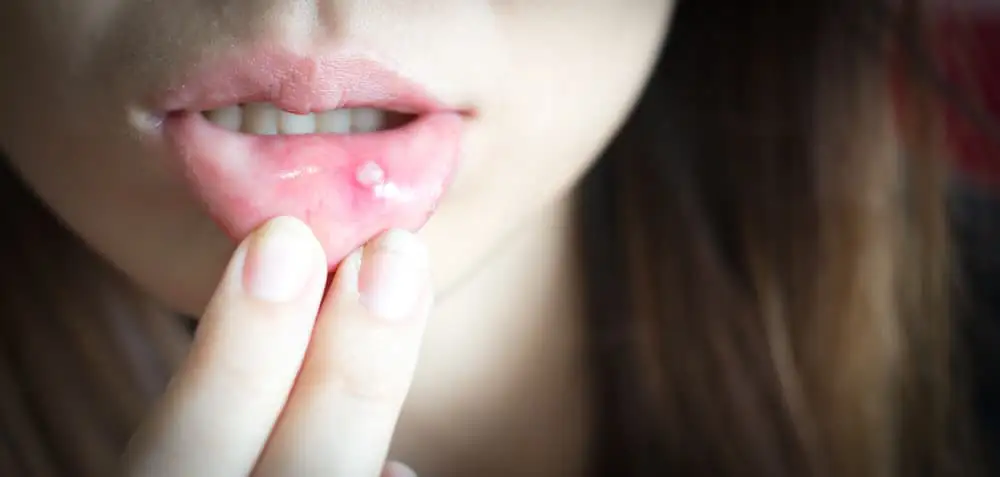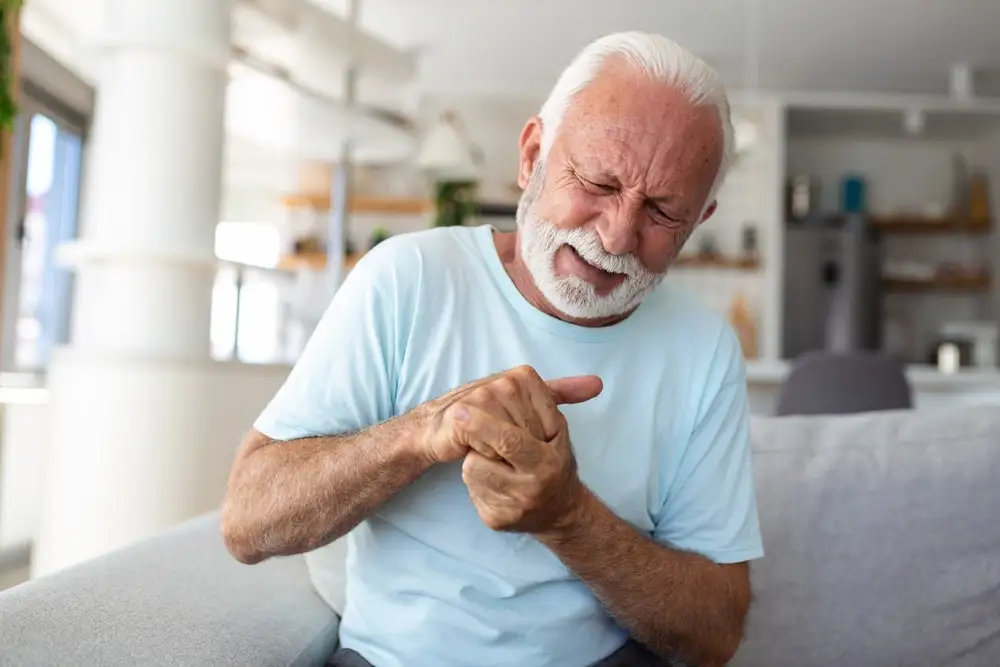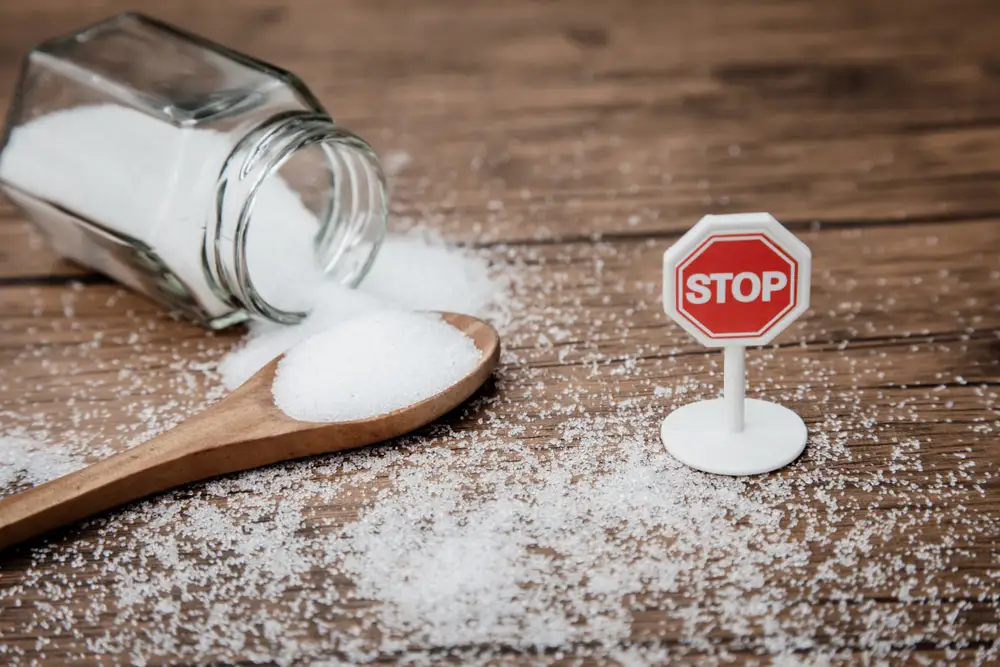If you suspect you have a cold sore developing, it’s best to be proactive to decrease the duration of your discomfort. While cold sores can be a little embarrassing, they’re absolutely common and there are lots of ways to limit a flare up’s impact on your life. In this article, we demystify what a cold sore is, explain what causes cold sores, discuss common triggers that may cause a cold sore outbreak, the symptoms of a cold sore and how to treat them.
What Causes Cold Sores?
A cold sore, also known as oral herpes, a lip sore or fever blister, is a small, red, fluid-filled blister caused by a virus, known as herpes simplex 1 (HSV-1). Forming in or around the outside of the mouth, the nose or the chin, cold sores are inconvenient but typically harmless.
What Causes Cold Sores?
Most people who experience cold sores are infected with HSV-1 in childhood or young adulthood from non-sexual contact such as a kiss from a relative or friend who may or may not have a cold sore present. In fact, approximately 90 per cent of adults have herpes simplex antibodies in their bloodstream, signalling they have been infected with the virus at least once, even if the infection has never surfaced as a cold sore.
What Triggers Cold Sores?
Certain triggers can cause the virus to become active, resulting in the blisters called cold sores. These triggers differ from person to person. Possibilities include:
Emotional or physical stress – Stress can lead to a weakened immune system, triggering a cold sore outbreak.
Fatigue – Exhaustion or feeling ‘run down’ can allow the cold sore virus to reactivate.
Illnesses such as influenza, a cold or a chest infection
Surgery or injuries to the skin
Over-exposure to sunlight – UV radiation from the sun may suppress the immune system and give the cold sore virus an opportunity to reactivate.
Exposure to strong winds
Hormonal changes from periods (menstruation) or birth control pills
Consumption of certain foods and/or alcohol
Cold Sore Symptoms
Although they are most common on the lips, a cold sore can appear anywhere on the body, including the nose, cheeks or fingers.
The most common symptoms that co-occur with cold sore blisters include:
Pain or swelling inside the mouth and on the gums
A sore throat
Swollen lymph nodes in the neck
Fatigue
Cold Sore Stages
Typically, a cold sore will progress through five stages.
Cold Sore Stage 1: Initial Symptoms
24-48 hours: More than 85% of people experience symptoms such as tingling, tightness, soreness or itching around the lip before a blister erupts.
Cold Sore Stage 2: Progression
Days 2-4: A collection of red, fluid-filled blisters will appear. This is a sign that the virus has woken up, is multiplying and the body is beginning to fight back.
Cold Sore Stage 3: Rupture
Days 4-5: The blisters may break and burst open. These blisters may be accompanied by tenderness, pain and a sensation of heat and burning.
Cold Sore Stage 4: Scabbing
Days 5-8: As the body enters the healing process, the exposed and ulcerated sores will dry out and start to scab over, causing itching, cracking and possible bleeding.
Cold Sore Stage 5: Resolution
Days 8-10: Once the body has the virus under control, the scabs will fall off, revealing new skin underneath.
How To Cure Cold Sores
Unfortunately, if you have been infected with the herpes simplex virus (HSV-1), the virus will remain dormant in your body forever. From time to time in periods of stress, it can reactivate, triggering cold sores. Doctors believe that people experience recurring cold sores due to a genetic mutation affecting the immune system. Most people will only experience a few cold sore flare ups in their lifetime.
How Long Does A Cold Sore Last?
Typically, a cold sore will fully heal on its own in just a week to 10 days.
Cold Sore Remedies: How To Treat Cold Sores
Wondering how to get rid of a cold sore fast? The best cold sore treatments include:
Cold sore cream – Betadine ointments can be dabbed onto a cold sore and may reduce cold sore symptoms.
Cold sore lip balm – A lip balm designed specifically for cold sores, or one that contains lysine, lemon balm or aloe vera, may be especially beneficial.
Antiviral for cold sores – Antiviral products containing docosanol or benzyl alcohol, such as acyclovir and famciclovir, can shorten the duration of a cold sore by reducing the virus’ ability to reproduce.
Home remedies for cold sores – Lemon tea, peppermint, mint, and witch hazel oil, aloe vera gel and liquorice root
Antiviral medicine for cold sores, such as creams and tablets, can help accelerate the healing process and decrease the severity of symptoms. For best results, start using the medicine when early symptoms such as tingling, itching or pain first appear. This will help your cold sore heal faster.
Can My Cold Sore Give Someone Genital Herpes?
Cold sores are caused by herpes simplex virus type 1, while genital herpes is usually caused by herpes simplex virus type 2. Although these viruses are different, it is possible for a person with a cold sore to transfer the herpes virus to the genitals of another person through skin-to-skin contact such as oral sex.
How To Avoid Giving A Cold Sore To Someone Else
Follow these steps to avoid passing your cold sore to another person:
Always wash your hands after touching your cold sore
Do not share drinks
Avoid sharing cutlery and utensils
Do not share personal items such as a towel, makeup or a toothbrush
Avoid close contact, such as kissing or hugging, with a newborn or young baby
Avoid kissing
Avoid close contact with people with a suppressed immune system
For more advice on how to treat cold sores, visit our state of the art clinics today or contact us on (07) 3711 2880.
What Causes Mouth Ulcers? How To Treat & Prevent Them Effectively
Mouth ulcers are a common oral condition that affect most people at some point in their lives. They can be uncomfortable, but they are usually harmless and will heal within 10 to 14 days without treatment. Here’s everything you need to know about mouth ulcers, including what they are, what causes them, the best treatments,…
Acute Vs Chronic Medical Conditions
No matter how old or young you are, we are all susceptible to acute and chronic medical conditions. Both conditions differ in how long they last and how severe the diagnosis is. An illness or condition can be as simple as the flu, or in a more severe case cancer or arthritis. Whether it is…
How Much Sugar Per Day?
Sugar is a type of carbohydrate and a source of energy for our bodies. It can occur naturally in foods like fructose in fruit, glucose in fruits and vegetables, and maltose in wheat and barley. However, manufacturers also often add sugar to extend the shelf life of foods, improve their appearance and/or make them taste…




